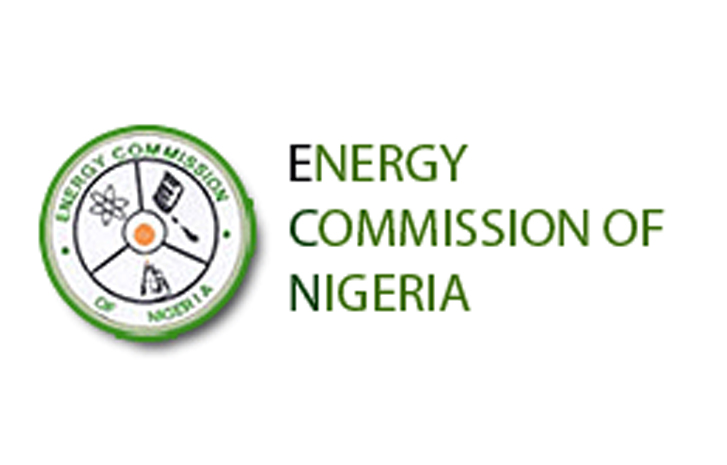The federal government has urged technical partners to come up with measures on how to upscale the production of hydrogen for utilization in Nigeria.
Energy Commission of Nigeria (ECN), Director General, Abdullahi Mustapha, who made the call, revealed that the major barrier to the utilization of hydrogen is how to upscale its production.
He spoke in Abuja at an event tagged: “Kick off Meeting/Stakeholders’ Interaction on the Nigeria 4H2 Project Titled “A Critical Analysis of the Potentials, Infrastructure and Other Enabling Framework Conditions For Green Hydrogen to Fertilizer Production in Nigeria.”
He said: “The problem we are facing in the utilization of hydrogen department today is how we can upscale the production of hydrogen. It is not just the utilization but how we can produce it.
“How are we producing, that is the challenge we are having today.
The technical partners we have here should teach us how we can produce more hydrogen for utilization.”
Meanwhile, the Minister of State for Petroleum Resources (Gas), Hon. Ekperikpe Ekpo, said while Nigeria continued to harness its oil and gas resources, it remains open to exploring opportunities in hydrogen.
According to the minister, who was represented by the Permanent Secretary, Ambassador Nicholas Ella, Nigeria, endowed with rich oil and gas infrastructure, occupies a unique position to leverage its expertise and infrastructure in transitioning towards its hydrogen potential.
Ekpo noted: “This prospect for synergy between conventional and sustainable energy is vast, and we must seize this opportunity to diversify our energy portfolio.”
He described the workshop as a nexus for collaboration, where industry leaders, policymakers , and innovators converge to carve a sustainable path forward.
The minister urged the stakeholders to explore the delicate balance between maintaining the resilience of the nation’s oil and gas sector and fostering the growth of green technologies.
Speaking, the Minister of Innovation, Science and Technology, Uche Nnaji, explained that green hydrogen results from splitting water molecules into Hydrogen and Oxygen using electricity generated from renewable sources.
According to him, it offers excellent potential to address the detrimental impacts of climate change occasioned by the release of greenhouse gases from fossil fuels into the environment while also serving as viable and sustainable pathways for alternative energy generation, industrial development, environmentally friendly transport fuel, methanol production, fertilizer production among other economic uses.
Nnaji noted that the global demand for hydrogen will likely climax at about 700 million metric tons (MT) by the year 2050, with annual hydrogen production projected to increase by 9.2% annually until 2030.
He said: “Therefore, there is no better time for Nigeria to plug into this opportunity to avoid playing catch-up with the Western world. As a country, Nigeria must play a critical and leading role in the global energy transition.
“Nigeria enjoys abundant sunshine, with an average of 11 hours of sun daily. Hence, Nigeria has immense solar radiation potential to power electrolyzers for hydrogen production. This potential makes Nigeria a critical stakeholder in the world energy transition.
“The application of green hydrogen in fertilizer production is fast gaining attention globally. Ammonia, made from hydrogen, is also an input in urea fertilizer. This opportunity presents a significant step towards sustainable agriculture. Ammonia, synthesized from green hydrogen and nitrogen from the air, provides an eco-friendly alternative to conventional fertilizers.
“Reducing reliance on fossil fuels and minimizing greenhouse gas emissions can safeguard our environment while ensuring food security for future generations.
“The concerted efforts of scientists, engineers, policymakers, and industries are necessary to achieve the tall vision of a net zero carbon environment and sustainable agriculture.
“Nigeria is one of the world’s leading crude oil producers, accounting for over 50% of its GDP.”
According to him, an essential goal of the NIGERIA4H2 Project is to critically analyze the potentials, infrastructure and other enabling framework conditions for Green hydrogen to fertilizer production in Nigeria.
The project, said Nnaji, which the German Government supports through the Federal Ministry of Education and Research (BMBF), will undoubtedly contribute immensely to the diversification strategy of the Federal Government towards achieving the Sustainable Development Goals.
The minister said: “The great importance placed on considering different pathways to industrializing Nigeria accounts for the presence of critical Ministers/Ministries in this event. The Ministers/Ministries of Agriculture and Food Security, Petroleum Resources (Gas), Water Resources and Sanitation, Environment, Power, Trade and Industries, Budget and National Planning and the Office of the Special Adviser to the President on Energy are either here or very strongly represented.
“With our Ministry’s renewed drive to attract and mainstream frontier technology that will drive industrial growth and propel Nigeria toward becoming a One-trillion- dollar economy, we must explore new sources and advance in Science and Technology.
“Thus, we are partnering with the consortia as a service ministry to connect all stakeholders in the hydrogen sector’s upstream, midstream, and downstream sectors.
“The Ministry intends to facilitate an environment for co- development of a national policy framework for Green Hydrogen by all stakeholders. This will ensure the sector’s rapid, robust, and all-inclusive development.
“I believe at the end of this meeting, all the stakeholders would have jointly identified and situated the expected players in the emergent hydrogen industry value chain in Nigeria, as well as the critical technical, environmental and policy framework for the exploitation of the Green Hydrogen potential of Nigeria.”










